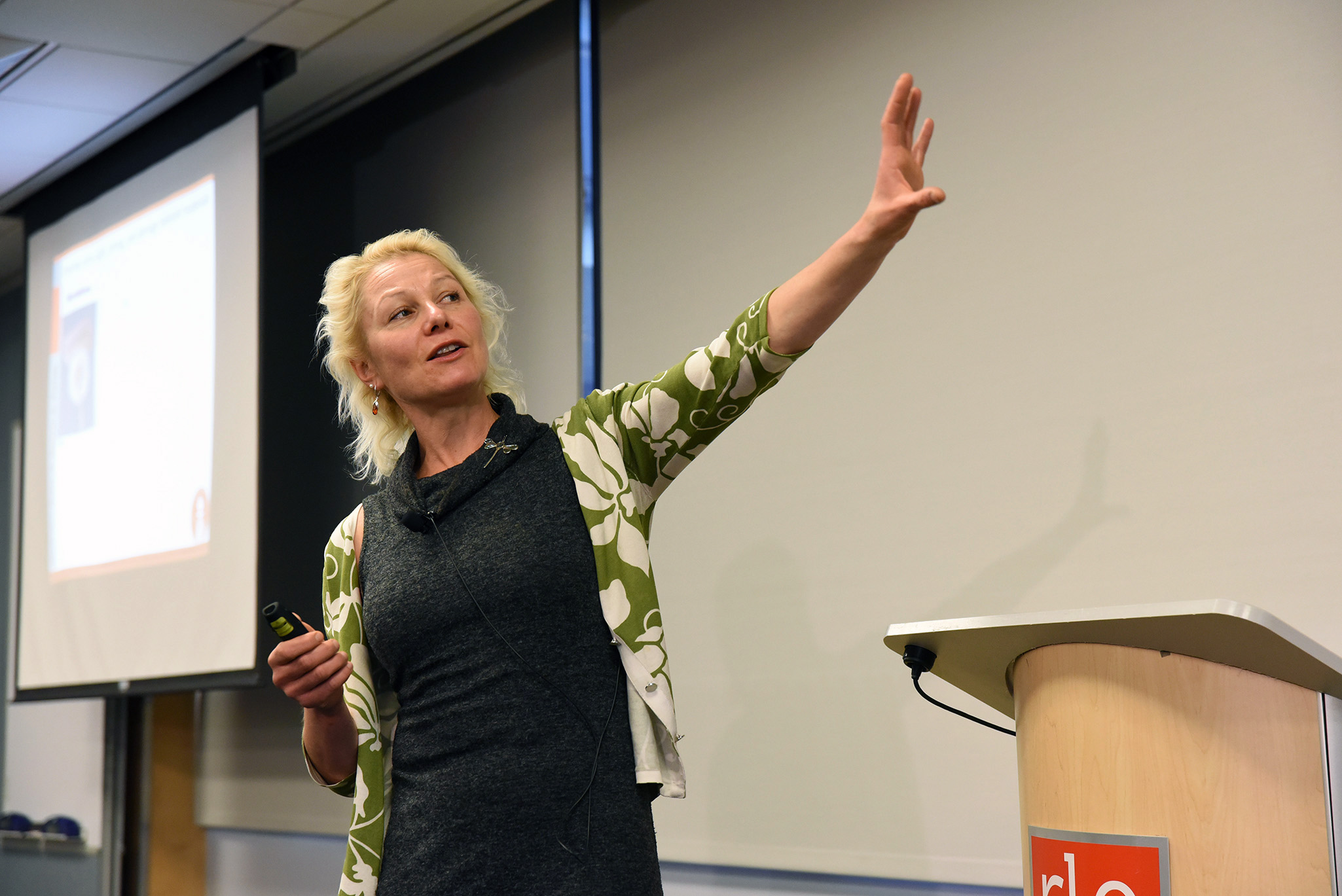Julia (Rosolovsky) Greer ’97 is a scientist and a classical pianist. Her nanotechnology research breaks new ground, and her music lifts people up. Fittingly, Fast Company named her one of its “Most Creative People” in 2014; CNN named her a “2020 Visionary” in 2016.
Greer is the Ruben F. and Donna Mettler Professor of Materials Science, Mechanics, and Medical Engineering at the California Institute of Technology and director of its Kavli Nanoscience Institute. Her work investigates the unique properties some materials display in particles sized at billionths of a meter, and uses these nanomaterials as building blocks for novel classes of materials that retain the benefits offered at the nanoscale. These materials can ultimately be deployed in chemical and biological devices, energy storage systems, and more.

TOM GEARTY
“We develop and synthesize materials not found in nature,” Greer explains. “These could enable technological advances like, for example, structural components that are durable yet lightweight or clothes that can reconfigure their fiber-weaving pattern with the weather.”
Her lab includes more than 20 PhD students, as well as postdoctoral scholars, visiting scientists, and undergraduates. “My favorite part of the job is interacting with students, making discoveries with them, and helping develop their careers,” she says. Current student projects from her lab include creating impact-resistant lightweight textiles, developing new types of electrodes for battery cells that can improve the performance and range of electric vehicles, and fabricating flexible membranes that can chemically bind to chemotherapy medications in order to extract them from the body to reduce their toxic side effects.
On top of her demanding career, Greer is the mother of three children who range in age from four to 12. In this busy life, she finds an outlet at the piano. “It allows my brain to relax,” she says.
She began playing as a young girl growing up in Moscow–“like all Russian girls do,” she says with a laugh–and continued when her family moved to Rochester, New York, where in high school she won a scholarship to train at the Eastman School of Music. At MIT, she received a music performance scholarship under what’s now known as the Emerson Program and gave recitals on campus, at MIT Lincoln Laboratory, and even at the Museum of Fine Arts, all while balancing chemical engineering coursework with rowing crew. She continued to play while working for semiconductor manufacturer Intel and earning her MS and PhD from Stanford University, and she still gives chamber music concerts on the Caltech campus and beyond. No matter what, she makes sure to practice for at least 20 minutes each day–favoring Brahms, Prokofiev, Schumann, Rachmaninoff, and Beethoven. (She’s not a Mozart fan.)
“It’s hard to carve out time to practice,” she acknowledges. “I think many people in my shoes would have quit.” In fact, lapsed pianists have pulled her aside after concerts to express regret over having done just that. “But my day is never complete without touching the piano,” she says.
In December, Greer delivered a talk entitled “Materials by Design: 3D Nano-Architected Meta-Materials” at MIT.nano, the Institute’s newly built center for nanoscale research. While visiting campus, she was able to play in one of her former practice rooms. MIT is as much a touchstone as the piano is, she says–a place where she made lifelong friends and found an intellectual home.
“I now realize MIT’s effect on me profoundly,” she says. “I didn’t appreciate it at the time, but as I’ve been moving through life, it’s amazing to me how much of my success is built upon what MIT gave me. Now, when I meet alums, we instantly feel connected.”


